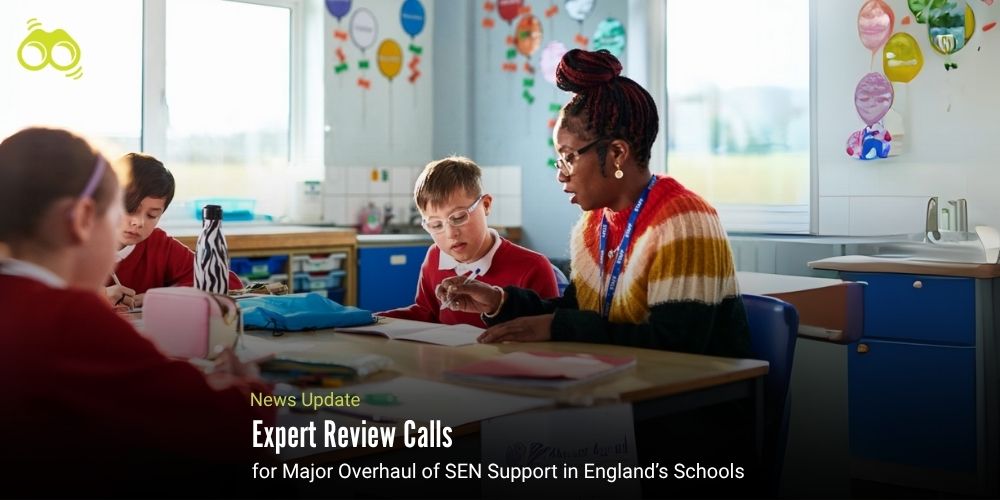New Review Urges Schools to Better Support Children with Special Educational Needs
Inclusive Education in England Needs Reform, Funding, and Political Will: Review Finds
Ensuring that every child receives fair and supportive education is a cornerstone of a just society. However, for many children with special educational needs (SEN) in England, full inclusion remains a considerable challenge. A recent expert review has shed light on the complex barriers schools face in becoming truly inclusive. Although some schools have demonstrated commendable efforts in supporting pupils with diverse learning needs, the review notes that these successes often rely on extraordinary staff commitment, efforts that are difficult to sustain over time.
Tom Rees, who led the review and chairs the Department for Education’s expert advisory group on inclusion, acknowledged that while significant progress is still needed, there are encouraging examples of inclusive practice across the country. He stressed the importance of reassuring parents that mainstream schools can meet the needs of their children. Moreover, he emphasised that improving inclusivity not only benefits pupils with special needs but enhances the learning experience for all students.
To address these challenges, the review recommends a three-tiered support framework that allows schools to adapt provision as pupils’ needs evolve. This structure includes universal support accessible to all learners, targeted assistance for those beginning to fall behind, and specialist provision for students facing persistent learning barriers. While the recommendations offer a hopeful vision, Rees also highlighted ongoing inconsistencies within the SEN system, particularly regarding training, guidance, frameworks, and the availability of resources. He called for bolder ambition in equipping teachers and school leaders to create more inclusive learning environments.
In line with these findings, Education Secretary Bridget Phillipson has prioritised inclusion as a central feature of upcoming reforms to the SEN sector. With rising numbers of SEN pupils placing growing pressure on school and local authority budgets, she stated that the review would help inform proposals in an autumn white paper. These reforms are intended to strengthen support in mainstream settings while safeguarding access to specialist school placements for those with more complex needs. Phillipson acknowledged the strain on the existing system but argued that current examples of good practice demonstrate that comprehensive reform is both necessary and achievable.
Nevertheless, parents and advocacy groups have expressed concerns that the government's planned reforms could lead to the restriction or phasing out of Education, Health and Care Plans (EHCPs), which currently guarantee statutory support for children with formally assessed needs. The review itself acknowledged that meaningful reform would require detailed operational changes within schools, including enhanced staff training, deeper engagement with families, and closer cooperation with external agencies such as local councils and the NHS.
Commenting on the review’s findings, Paul Whiteman, General Secretary of the National Association of Head Teachers, reiterated schools’ deep commitment to inclusive education. However, he cautioned that this commitment is frequently undermined by limited funding, insufficient resources, and poor access to specialist staff and support services. He also pointed to wide regional inequalities, with local authorities and healthcare systems often unable to provide consistent services due to the effects of prolonged underfunding. While the review brings welcome attention and renewed optimism, achieving meaningful inclusion for children with special educational needs will require sustained political will, targeted investment, and collaborative effort across the entire education system.
Editor’s Note:
Inclusive education is a fundamental right, and children with special educational needs (SEN) deserve schools that are not only physically accessible but also responsive to their individual learning needs. This expert review marks a crucial step in recognising both the promise and the pressing challenges of creating an inclusive education system for children with special educational needs (SEN) in England. At a time when the number of SEN pupils is rapidly increasing and pressure on school and local authority budgets continues to mount, the review’s recommendations offer a practical, structured path forward, one that balances universal access with targeted and specialist interventions. The emphasis on adaptable support, stronger teacher training, and meaningful collaboration with families and external agencies reflects a grounded understanding of what true inclusion demands. However, the concerns raised by parents, campaigners, and educational leaders about the future of EHCPs and regional disparities in provision cannot be ignored. If reforms are to be successful, they must be built on a foundation of trust, transparency, and adequate funding, factors that have too often been lacking in past initiatives. Education Secretary Bridget Phillipson’s stated commitment to inclusion and forthcoming policy changes is welcome, but the success of these efforts will depend on more than policy announcements. Real progress will require sustained political will, long-term investment, and an unshakeable belief that every child, regardless of ability, deserves not just access to education but meaningful participation in it.
Skoobuzz notes that, if properly funded and supported with adequate training, this review could signal a turning point for inclusive education in England.














0 Comments (Please Login To Continue)